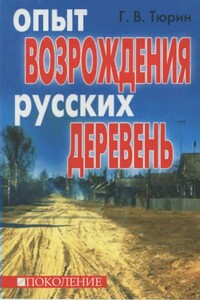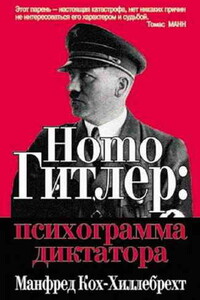The Boy Scouts In Russia - [30]
"Thank heaven he's stupid, that Schmidt!" thought Fred.
Then he had a fit of remorse. He was afraid that it would go hard with Schmidt, for he knew that in the German army excuses are not readily accepted. However, it was not a time to think of sentiment. Fred was taking desperate chances himself, and it had been a case of seizing any chance of escape that offered itself. Not only his own liberty, but very probably his own life had depended upon his getting away. He knew enough, by this time, to understand that the outcome of the first campaign of the war might depend upon the accuracy of the information the Russians obtained of the German movements.
It was plain to Fred that the Russians, in this quarter at least, had not been well served by their spies. He was surprised at the absence of initiative the Russians had shown in some ways. Aeroplane scouting, for instance, would have made it impossible for the Germans to spring such a surprise as evidently was in preparation. The Germans were using their aerial scouts. It was one of them, detecting the approach of General Suvaroff and his Cossack raiders, who had spoiled the plan for the capture of von Hindenburg.
But though he had felt that he was perfectly justified in sacrificing Schmidt to his own need to escape, Fred could not help feeling sorry for the poor fellow.
"I hope he'll be able to think up a good story!" he said to himself. "And, by George, I hope I don't meet any more German soldiers! They would certainly finish me off if they found me riding on a German horse! There isn't anything I could do that would make them think that was all right, no matter how stupid they were!"
He urged his horse on now as hard as he dared, tired though he knew it to be. His plan was simple enough. He meant to ride to within a mile of the village, and then dismount, letting the horse go wherever it liked. Its usefulness to him would be over as soon as it had put him past the possibility of pursuit. He thought his troubles were nearly over. But suddenly, around a turn in the road, came a glare of light, and in his ears sounded the bugle of a German military automobile. CHAPTER XIV
Fred's horse did for him what he could scarcely have done for himself in time. It reared and threw him, then bolted. Tired already, the sudden appearance of the monstrous ray of light and the roar of the approaching motor was too much for that horse. Fred was not hurt by the fall. Having had no stirrups from which to disengage his feet, he was able to let himself go. And he had no sooner landed than he was up. For just a moment, he knew he must be plainly visible in the glare of the searchlight. But he dashed for the side of the road and made his way through a hedge and into the field on the other side. There he began to run as fast and as hard as he could.
He had two chances, he thought. One, that he had not been seen at all; the other, that whoever was in the car might think he had passed on the flying horse. If he had been seen, however, he could not hope to escape by running. He was too tired, for one thing, after the strenuous experience of the previous night, and for another, he was almost certain to be seen, for after he had traversed a space that was covered with shrubs and young trees, he would be in the open. And a bullet could travel faster than he could.
And so, after making his dash, he stopped running and threw himself down, facing the road, to watch and to listen. At first he thought he was safe, for the car roared by. But in a moment his ear caught a different note in the sound of the motor, and then the engine stopped. It started again in a moment, but now the headlight was coming toward him again! The car had been turned around. It was back, undoubtedly, to look for him. Still he decided not to run, but to stay where he was, though every instinct prompted him to take the chance of flight. That, however, was pure panic, and he fought against the impulse.
The car came along slowly. He was not more than a hundred feet from the road, and the headlight showed him the progress of the car. Its blinding light, however, made it impossible for him to see the car itself or its occupants. It gave them the advantage. Finally the car stopped, and he groaned. It had stopped exactly opposite his hiding-place! He had hoped that they would not be able to tell just where he had left the road, but in a moment the explanation came to him. He had trampled down the hedge in getting through, of course, and had left a trail that a child might have followed.
Then the headlight was switched off, and for a moment he lost the car altogether. His ears, rather than his eyes, told him that someone was coming. He heard the breaking down of the hedge, and then footsteps moving slowly, but coming closer. And in a moment he saw a little stabbing ray of light that wandered back and forth. Whoever was stalking him was evidently not afraid of him.
Suddenly he remembered his pistol, the one he had taken from Schmidt's holster. He gripped it convulsively. After all, he was not as helpless as he had believed. He waited. Should he risk all now, with a shot-a shot that might warn this stalker off and give him another chance to escape, even though there were others in the car? He drew out the pistol, and cocked it. Then, at the faint sound, a voice called to him out of the darkness.

Текст воспроизведен по изданию: Письма Бичурина из Валаамской монастырской тюрьмы // Народы Азии и Африки, № 1. 1962.

Плачевная ситуация в российских деревнях известна всем. После развала масштабной системы государственного планирования исчезли десятки и сотни тысяч хозяйств, произошел массовый отток населения из сельских районов, были разворованы последние ценности. Исправление ситуации невозможно без эффективного самоуправления в провинции.Организованный в 1997 году Институт общественных и гуманитарных инициатив (ИОГИ) поставил перед собой цель возрождения сельских районов Архангельской области и добился уникальных результатов.

В настоящее издание включены все основные художественные и публицистические циклы произведений Г. И. Успенского, а также большинство отдельных очерков и рассказов писателя.

До сих пор историки многого не знают о Гитлере. Каковы были мотивы его мыслей и поступков? На чем основана легенда о его громадных знаниях и сверхчеловеческих способностях влиять на людей? Автор этой книги, немецкий профессор, в результате долгих и кропотливых исследований создал психограмму человека, возглавлявшего III рейх.

В настоящей книге Конан Дойл - автор несколько необычных для читателя сюжетов. В первой части он глубоко анализирует произведения наиболее талантливых, с его точки зрения, писателей, как бы открывая "волшебную дверь" и увлекая в их творческую лабораторию. Во второй части книги читатель попадает в мистический мир, представленный, тем не менее, так живо и реально, что создается ощущение, будто описанные удивительные события происходят наяву.

В книге рассказывается история главного героя, который сталкивается с различными проблемами и препятствиями на протяжении всего своего путешествия. По пути он встречает множество второстепенных персонажей, которые играют важные роли в истории. Благодаря опыту главного героя книга исследует такие темы, как любовь, потеря, надежда и стойкость. По мере того, как главный герой преодолевает свои трудности, он усваивает ценные уроки жизни и растет как личность.